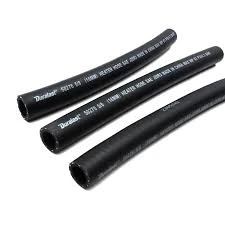Understanding the Function and Importance of the Fuel Inlet Tube in Engine Performance
Dec . 17, 2024 05:32 Back to list
Understanding the Function and Importance of the Fuel Inlet Tube in Engine Performance
Understanding the Importance of Fuel Inlet Tubes in Automotive Systems
Fuel inlet tubes are critical components in automotive fuel systems, responsible for channeling fuel from the tank to the engine. Despite their small size relative to the entire vehicle, these tubes play a vital role in ensuring efficient operation and optimal fuel economy. This article examines the significance of fuel inlet tubes, their design considerations, potential issues, and maintenance practices.
What is a Fuel Inlet Tube?
A fuel inlet tube is a pipe or hose that connects the fuel tank to the engine's fuel delivery system. It serves as the pathway for liquid fuel to move from the tank to the fuel pump, before being routed to the fuel injectors for combustion. The design of these tubes must accommodate the fuel's physical and chemical properties while withstanding various environmental factors.
Design Considerations
The design of fuel inlet tubes involves several crucial considerations
1. Material Selection Fuel inlet tubes are typically made from materials that resist corrosion, pressure, and temperature fluctuations. Common materials include high-grade plastics and metals like stainless steel, which provide durability and strength.
2. Diameter and Length The diameter of the tube must be sufficient to allow a steady flow of fuel to the engine, preventing pressure drops that could affect performance. Similarly, the length of the tube must be optimized to minimize fuel travel distance while avoiding sharp bends that could restrict flow.
3. Sealing and Connections Proper sealing at the connection points is a critical aspect of fuel inlet tube design. Leaks can not only lead to fuel loss but also create hazardous situations due to the flammable nature of gasoline and diesel. O-rings and gaskets are often utilized to ensure a secure seal.
4. Vibration Resistance Vehicles experience a variety of vibrations and shocks during operation. Fuel inlet tubes must be designed to withstand these forces without cracking or breaking, which could lead to fuel leakage and mechanical failure.
Potential Issues
Even with careful design, fuel inlet tubes can experience a range of issues over time
fuel inlet tube

1. Clogs and Blockages Contaminants in fuel can lead to clogs, restricting the flow of fuel to the engine. Regular fuel filter maintenance is essential to preventing this issue.
2. Leaks Over time, wear and tear or stress from vehicle vibrations can cause leaks. A leak not only reduces fuel efficiency but also poses significant safety risks.
3. Corrosion In certain environments, metal tubes can corrode due to exposure to road salt or moisture. This is more common in older vehicles where protective coatings may have degraded.
4. Temperature Variability Extreme temperatures can lead to expansion or contraction of fuel inlet tubes, which may cause stress at connections and result in leaks or breaks.
Maintenance Practices
Maintaining fuel inlet tubes is essential for ensuring the overall health of a vehicle's fuel system. Here are some maintenance practices that can help
1. Regular Inspections Routine checks of the fuel system can help identify issues early. Inspect hose connections for signs of wear, leaks, or corrosion.
2. Fuel System Flush Flushing the fuel system can help remove contaminants that could lead to clogs in the inlet tube.
3. Use Quality Fuel Using high-quality fuel reduces the chances of buildup and ensures that additives present in the fuel help keep the system clean.
4. Professional Maintenance When in doubt, having a professional mechanic examine the fuel inlet tube during routine service can help ensure that the entire fuel system remains in optimal condition.
Conclusion
Fuel inlet tubes, while seemingly minor components of a vehicle, are essential for the smooth operation and efficiency of the automotive fuel system. Understanding their role in fuel delivery, recognizing potential issues, and implementing proper maintenance practices can significantly enhance a vehicle’s performance and safety. By emphasizing the importance of these components, vehicle owners can ensure a reliable and efficient driving experience. Investing time and resources into maintaining fuel inlet tubes is just one of many ways to promote longevity in automotive machinery.
